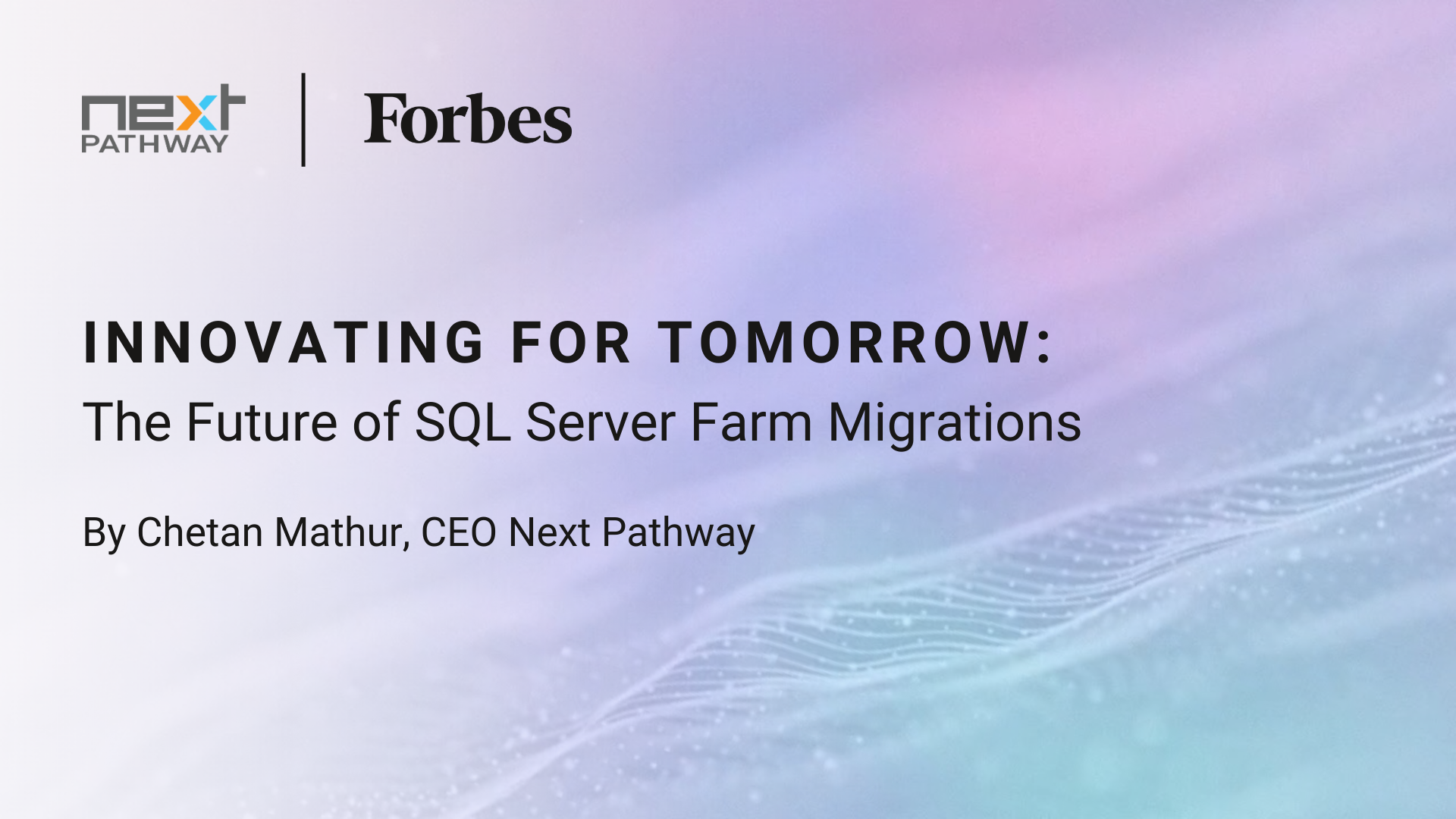
In an era defined by digital innovation, businesses face constant pressure to modernize, improve efficiency, cut costs and stay competitive. Amid this landscape, the strategic migration and consolidation of SQL server farms to the cloud emerge as a terrific opportunity to realize business benefits. Modernizing an existing legacy platform can often be intimidating for customers, but thankfully, the migration of legacy systems has been vastly improved using automation.
The Shift Toward Cloud Migration
The driving force behind this article is the notable shift toward cloud migration in businesses across various industries. Many companies are fascinated by the promise of AI and how it can revolutionize their business. A key step to enable AI is the ability for an organization to move legacy assets (i.e., enterprise data) to the cloud and get it "AI-ready."
As a technology enthusiast and a professional deeply involved in digital transformation initiatives, I have witnessed firsthand the challenges and opportunities that come with migrating SQL server farms to the cloud. My unique perspective is shaped by my experiences in helping businesses navigate this complex process, leveraging the power of the cloud to drive innovation, enhance security and achieve operational excellence.
For instance, Azure's Hybrid Benefit program allows businesses to transition existing licenses to the cloud, reducing overheads and maximizing savings potential. Similarly, GCP's sustained use discounts, AWS's reserved instances and Snowflake's capacity usage model can all offer significant savings for businesses with predictable usage patterns, thereby optimizing the overall cost of cloud adoption.
Security And Environmental Responsibility
In an age where data breaches are a significant concern, securing sensitive information within SQL server farms is crucial. As part of the modernization process, cloud providers, armed with advanced security measures and strict compliance certifications, can help preserve data integrity. Through strong encryption protocols and adherence to industry standards, businesses can be confident that their SQL server farms' assets are protected from evolving cyber threats.
Beyond just financial and security considerations, the migration of SQL server farms to the cloud signals a shift toward environmental responsibility. By embracing cloud infrastructure and reducing the number of physical servers, businesses can significantly lower their carbon footprint. This commitment to sustainability reinforces an organization's ESG framework while aligning with global environmental goals and enhancing a company's reputation as a responsible corporate citizen.
As part of the modernization process, cloud providers offer a wide range of tools designed to improve the performance of SQL server farms. From optimizing queries to managing large-scale datasets, these tools empower businesses to get the most out of their cloud investments. Additionally, consolidating SQL server farms' environments in the cloud can streamline management, giving IT professionals better control and visibility over their digital assets.
At the heart of this modernization narrative lies the transformative power of automation. Through intelligent automation technology, businesses can speed up the migration process of SQL server farms, reduce risks and ensure a smooth transition. Automated tools, skilled at handling complex workloads and intricate transformation rules within SQL server farms, usher in a new era of efficiency and reliability. By automating testing processes, businesses can verify data integrity and structure with precision, minimizing disruption and maximizing operational continuity.
Migrating SQL server farms to the cloud offers long-term benefits, including optimized costs, flexibility, enhanced security and simplified management. Once SQL servers are migrated to the cloud, businesses can continue to benefit from the ongoing transformation, such as by leveraging the greater use of data and the ability to scale compute power based on demand.
| Read the full article on Forbes Tech Council: Innovating For Tomorrow: The Future Of SQL Server Farm Migration
About Next Pathway
Next Pathway is the Automated Cloud Migration company. Powered by Crawler360™ and SHIFT Cloud, Next Pathway automates the end-to-end challenges companies experience when migrating applications to the cloud. For more information, please visit nextpathway.com.
